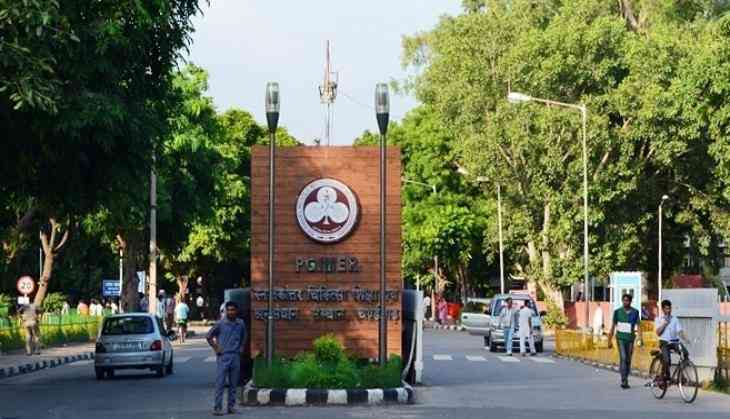Research at PGIMER on stem cell therapy offers hope of affordable treatment to liver patients

Stem cell therapy comes as a new hope for the liver disease patients. Efforts at treating liver cirrhosis and alcoholic hepatitis through this technique at the Chandigarh based Post Graduate Institute of Medical Education and Research (PGIMER), one of the premier public health institutions in India, over the last eight years have yielded path breaking results when it comes to treating liver patients. The outcome of the research carried out here has led to trials being undertaken in the United States of America on the technique adopted at the PGIMER.
Professor Virendra Singh of Department of Hepatology at the PGIMER explains, “The end treatment for a person with liver cirrhosis has been a liver transplant. In public institutions like ours this is done through the liver donations of brain dead patients. Apart from the donors being difficult to find, the cost of the transplant is very high. In public healthcare facilities like the PGIMER it can range between Rs 10 lakh to Rs 15 lakh while in private sector facilities it is more than Rs 25 lakh. In addition to this the patient has to be put on immuno-suppression drugs, which is a disease in itself. But the stem cell treatment costs peanuts in comparison. It is around Rs 10,000 for multiple courses that we have worked on and Rs 3,000 for a single course.”
He further said that in case of the stem cell therapy there is no need to put the patients on immuno-suppression drugs since the stem cells have been derived from the patient's body only which is one of the major advantages of this therapy. The patient experiences a temporary side effect of back and bone aches for a few days since his bone marrow becomes hyper active during the course of treatment.
The studies that the PGIMER carried out on patients of liver cirrhosis and alcoholic hepatitis through the stem cell therapy involved stimulating a patient's bone marrow by an injection called (Granulocyte Colony Stimulating Factor (GCSF) that produces new cells called hematopoietic stem cells.
“While the liver of the patient is damaged, the bone marrow is in good condition. He said that administering of GCSF leads to a manifold increase in blood count and some of the new cells home into the liver and take the function of liver cells thus resulting in liver regeneration,” explained Dr Virendra Singh. The multiple courses of this therapy has led to more than 70 per cent improvement in the quality of life score of the patients.
The stem cell therapy can act as a bridge for liver transplant providing time to the patients to arrange for the transplant. However, if the person stops taking liquor and the therapy goes on well, the patient can lead a healthy life for many years. Dr Virendra Singh said that he has follow up patients who have been coming to him for the last ten to twelve years.
The experts at the PGIMER including Dr Virendra Singh, Dr Ratiram Sharma, Dr Nipun Verma, Dr Amarjit Keisham, Dr Ashish Bhalla, Dr Navneet Sharma, Dr Amrijyot Kaur, Dr Ritesh Agarwal, Dr Akash Singh and Dr Arka De carried out trials through stem cell therapy on 65 patients of decompensated cirrhosis and 46 patients of severe alcoholic hepatitis. Their studies have been published in international medical journals 'Hepatology' and 'Clinical Gastroentrology and Hepatology', the latter being published last December. These papers are being quoted internationally.
Talking about the spread of the liver disease, Dr Virendra Singh Singh said that 50 per cent of the patients coming to the PGIMER for treatment with the disorder are alcoholics, 30 per cent are those who have had attacks of Hepatitis and 20 per cent are those whose obesity has led to the NFLD (non alcoholic fatty liver disease). With reference to Punjab in particular he said that the story of Punjab's youth is that they start consuming alcohol at the age of 20 years and after another 15 to 20 years their liver stands damaged. “This is something very dangerous,” he says.
Another interesting aspect of the PGIMER trials has been that liver patients who were diabetic and were put on the stem cell therapy were also cured of their diabetes. “This is because while some of the new cells produced in the GCSF courses homed into the liver, there were also some that homed into the pancreas thus curing the patient of his diabetes,” he added.
He said that while age has got nothing to do with the stem cell therapy introduction, this treatment cannot be given to people who are suffering from some other serious diseases like cancer.
After the trials were carried out successfully, there have been another 100 patients who are undergoing the stem cell therapy for the liver disease at the institute. Dr Virendra Singh said there are plans to start liver regeneration clinics at the PGIMER soon.
With the recent publication of the research trials done at the PGIMER many other public sector as well as private institutions are expected to initiate stem cell therapy for treating liver disorders soon.


